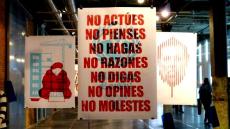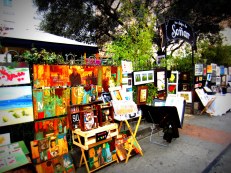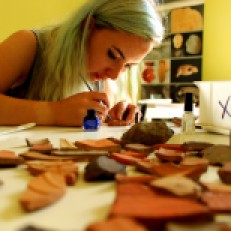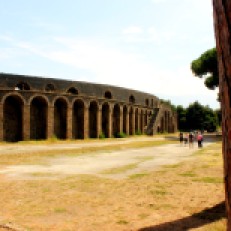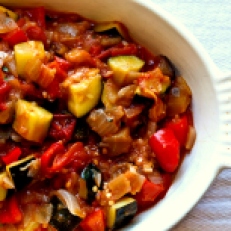Life
Farewell, fond 20s! I’m ready to move on
Why do we expect so much of life, and of ourselves? Why do we choose to be unhappy? Some questions pondered, some lessons learnt, some wisdom received
Published in Dawn Blogs, May 26th 2015
Once, when I was an undergraduate at LUMS in Pakistan, we were asked to create “future” CVs for ourselves, imagining where we would be 10 years down the road. According to my calculations, by age 30 I would be an acclaimed international affairs correspondent with Al Jazeera TV. I would also be a certified yoga instructor, the author of an award-winning collection of short stories, and the co-director of a charity school in Pakistan. I would have trekked to the base camp of an 8,000-meter peak (if not summited the peak itself), and I’d be speaking 5 languages like a native, or as we say in Urdu, farr farr.
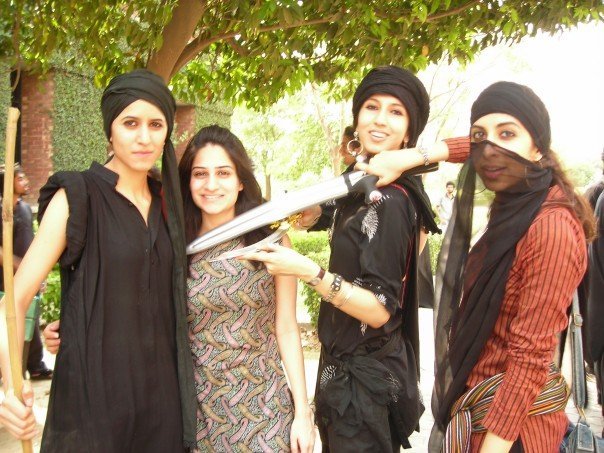
A few weeks ago, I celebrated my 30th birthday. And looking back at that smug, overambitious piece of paper (I still have a copy), what do you suppose I felt? Disappointment, at falling short on pretty much all of my grandiose goals? Guilt, for being lazy, for not doing “enough”, for not “living up to my potential”? Anger, at myself, at people around me, at the circumstances that thwarted my legendary ascent to that 8,000-meter peak and to age 30?
No. I only laughed! Frankly, I couldn’t give a baboon’s butt about goals, objectives, achievements that you could enumerate on a CV, that you could neatly check off from a “bucket list” and be done with. I didn’t care about what I may have expected from life 10 years ago, 5 years ago, even 1 year ago.
I used to care, I used to care a lot. During my 20s, I was beleaguered by that pervasive pressure to “achieve”, all too familiar to us Millennials. Often times, we weren’t even sure of what we wanted to achieve; it could be an important position at a multinational corporation or a big bank, it could be starting our own business, running an NGO, getting a PhD, “making a difference”. Yes, what we wanted most of all was to make a difference, to “change the world”.
I am not a superhero!
I stopped thinking like that some time ago, and it was a conscious decision. I stopped thinking that I could change the world.
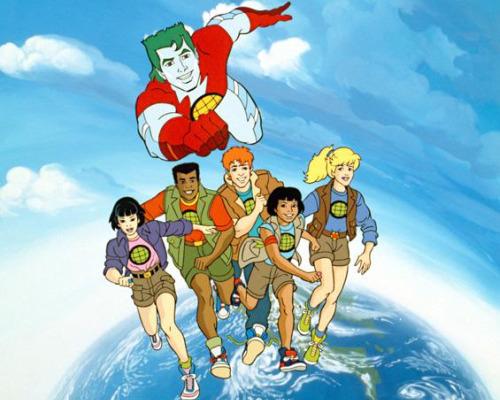
That’s not to say that I became cynical. I just realized that I, as one individual, did not have the power to change or “save” the world. I couldn’t eradicate poverty. I couldn’t stop wars. I couldn’t ensure that every child on the street went to school, that no woman was raped by any man. I couldn’t put an end to meaningless violence, I couldn’t reverse global warming.
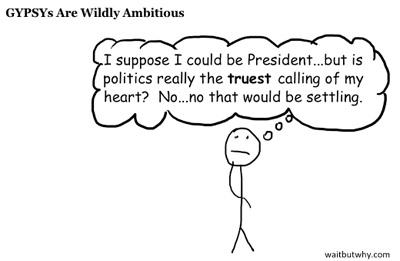 I couldn’t carry through any of this in my own hometown Lahore, let alone the entire world. The world was chockfull of problems, had always been, and would always be. It was the sorry fate of humankind. And to think that you were somehow “special”, that you could clean up a mess that was centuries, millenia in the making just like you’d solve a nifty Math problem, was downright arrogant.
I couldn’t carry through any of this in my own hometown Lahore, let alone the entire world. The world was chockfull of problems, had always been, and would always be. It was the sorry fate of humankind. And to think that you were somehow “special”, that you could clean up a mess that was centuries, millenia in the making just like you’d solve a nifty Math problem, was downright arrogant.
Once in a while, perhaps once in every generation, somebody exceptional came along. Extraordinary people who, by dint of birth, effort, circumstance, and some serendipitous conjunction of the stars, did extraordinary things. The world’s heroes and heroines, revolutionaries and prophets, thinkers and humanitarians, inventors and scientists, artists and writers, whose names we all read in history books. I don’t suppose that any of these great people ever planned on changing the world, or becoming famous. I don’t suppose they wrote about it in their college applications, or scribbled it on their “bucket lists”.
I think they were just going about their lives, one day at a time, doing whatever it was they loved and believed in – not expecting any accolades or honors, not preoccupying themselves too much with “results”, just following their intuition, being themselves.
That’s one thing we all have the power to do; be ourselves. Improve ourselves, and consequently, have a positive effect on everything around us.
It could be something as simple as, say, recycling your trash. Giving a sandwich to the homeless man on your street. Holding open the door for an old lady at the metro station. Lending an ear to a friend who’s had a bad day. Giving somebody an unexpected gift. Teaching somebody a skill, or learning something new yourself. Making friends with somebody from a different religion, ethnicity, culture and country. Making the world a more tolerant, a more peaceful, kinder and happier place by embodying those qualities in your own person.
That was, realistically, the best I could do, and it was enough for me. There was no point in beating yourself up over “failed” ambitions or irrational expectations, neither your own nor those of others.

I am not a martyr or a saint!
The expectations of others, or “What will people think!”. We’ve all been oppressed by them – from something as trivial as buying the “right” gift for a birthday party, “having” to attend a cousin’s friend’s brother’s wedding or wearing the “right” outfit to a family lunch, to being emotionally coerced into a marriage by your parents, putting up with an abusive husband, sticking with a job that daily sucks the life out of you. Why? Because that’s what you’re expected to do. That’s what a good, responsible, respectable man or woman does. A good, responsible, respectable person makes everybody happy – everybody except himself. A good person is a martyr.
Now, there may be people out there who would gladly suffer all these societal tortures, and many more, out of a genuine sense of duty, or out of pure selflessness. But most of us are not like that. We are not selfless. We are not saints. We may like to think we are, but deep down inside, where nobody can hear our true thoughts, we ask ourselves: “Why am I doing this? Is it worth it? I’m fulfilling all my ‘duties’, but why am I still so miserable?”
There’s something perversely romantic about misery, the notion of sacrificing your life for the sake of others, for your children, parents, friends, your community and country, without a thought to your own wishes and desires. Whether or not you enjoy being cast in that role, society will definitely love you for it.
On the other hand, society will not take kindly to seeing you happy. That’s just shameless. And, if you insist on being so brazenly optimistic, then at least pretend to have something to gripe about!
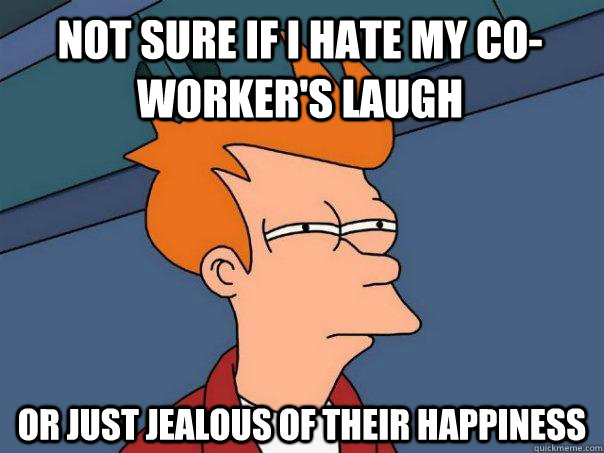
This kind of thinking is typical among desis (South Asians), and I was done with it. If your actions didn’t spring from love or genuine kindness, if your only motivation was to “live up to” some vague ideal or ill-conceived expectation, the fear of what people might say, then those actions were worth very little. It was better to spare yourself and the people around you the charade. The fact was, you couldn’t make anybody happy, truly happy – not your parents, not your partner, not your kids nor colleagues, nor posterity – unless you were happy and fulfilled yourself. It was not always the simpler choice; oftentimes, it was easier to be miserable, it was easier to be a doormat than to stand up for your inviolable right to happiness. But it was a choice you made.
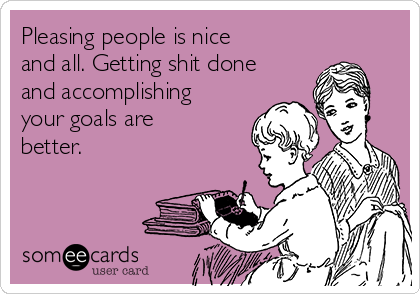
I am not a victim
So far, I’ve led a pretty privileged life. I’ve never known hunger, or homelessness, or direct violence or abuse, none of the unimaginable hardships that form reality for millions of people around the world. All of us, sitting at our laptops or scrolling down our smart phones, are familiar with the ordinary struggles of human existence – death and sickness in the family, relationship troubles, financial crises – but nothing as shattering as the experience of a child in a war-torn country, a family who has lost everything in a natural disaster, the victim of racism or religious persecution, a refugee, an addict, a prisoner, a slave.
Given the enormous advantages that we already have, there is really no excuse for us to feel sorry for ourselves, or vainly blame others for our own unhappiness. We are not victims, and we are certainly not helpless. We are lucky enough to be able to choose what we want to do, how we want to live. We are lucky enough to be able to make our own decisions, chart our own priorities, control the course of our lives with some degree of certainty (putting aside a percentage for qismat, of course). It could be, for example, choosing to spend on a holiday rather than a new piece of jewelry, or exercising instead of watching TV. Or it could be something more far-reaching, like deciding to move to a new country, taking on a new job, having a baby.
The bottom line is, we all are blessed. We all have gifts, we all have dreams, and most importantly, we all have volition. We just need to muster up the courage to pull those tricks out from our magic bags and put them to use, in spite ourselves.
I am rather insignificant
So, what have I learnt about life after 30 years? It doesn’t seem like a whole lot, even by earthly accounts. In the universal scheme of things, it’s embarrassingly negligible…
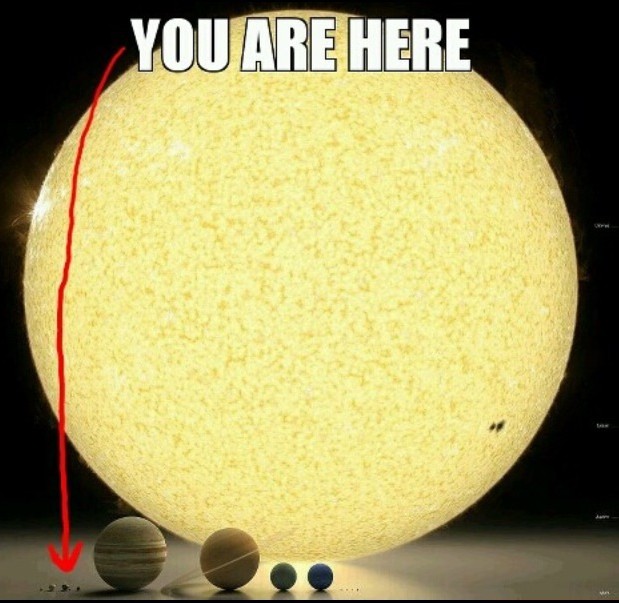
But, keeping things relative, as of now I feel that life is really about living. It’s not about achieving lofty goals, building lofty monuments, racking up positions, bank accounts, cars and TVs and diamonds. It’s not about pleasing others, being a hero, a saint or a superstar, devoting your life to any one cause.
It’s about finding contentment, finding beauty, finding peace in the little things. The day-to-day achievements, the seemingly mundane. You learnt a new word today. You tried a new dish. You finished an assignment before deadline. You took your kids to the movies. You caught up with an old friend. You explored a new neighborhood. You danced under the trees.
Your expectations of yourself need not be grander. Yes, you may wish to write a book one day, or set up a charity school – I know I do! I haven’t forgotten those dreams. But I’m no longer in a rush to accomplish them, nor am I going to let them dictate or frustrate my present.
I look…different!
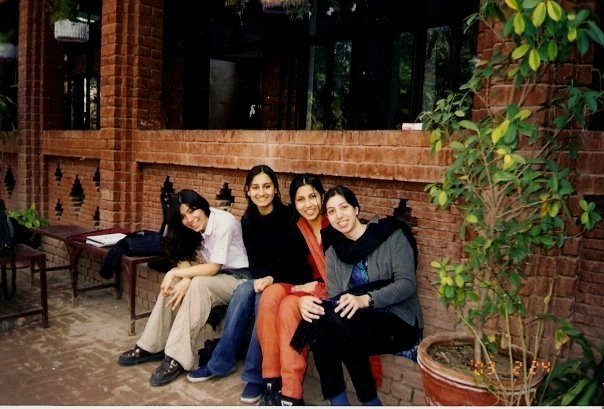
There was a time when I’d walk out of the house with a squeaky clean face and just a dash of kajal in the eyes, ready to go to college, a dinner or a wedding; now, I use makeup on a regular basis. I even wear lipstick, something I found utterly loathsome at 20! The salon girl makes it a point to count out the growing number of white hairs on my head every time I go for a trim, shaking her head disapprovingly, “But why don’t you dye???” I find myself flipping magazines at various doctors’ clinics much more often, thanks to an array of itinerant physical pains. I’ve become more attentive to what I eat, trying my best to choose a salad or a piece of fruit over a cupcake or a toast slathered with butter and marmalade; before, I couldn’t be bothered about the lumps of sodium in ChinChin Chinaman’s hot and sour soup, or the pools of grease in the LUMS cafeteria chicken karhai.
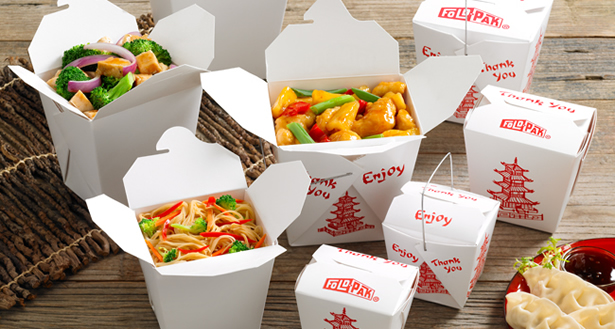
Then there are the inner changes, the ones you can’t really see; I feel happy, but in a calmer way. I’m not in a hurry to go anywhere, do anything, be anyone. I don’t care as much of what people think of me, and I’m a lot less concerned about offending somebody over a nicety. The smudges of shyness and self-consciousness that I had retained from teenage into my 20s have all but dissipated – and life is so much easier without them! I avoid comparing myself with others, I try not to be overly self-critical (a family trait), and most of all, I remind myself to be grateful, and not take life too seriously.
And what of the idealistic goals of that fictional 10-year old CV? Well, I didn’t fall off the mark entirely when I made those predictions. So I’m not a correspondent with Al Jazeera TV, but I did work at Democracy Now, the most excellent independent TV news program in the U.S. (in my opinion!). I’m not a certified yoga instructor, but I am an uncertified Bollywood dance teacher! There’s no collection of short stories (let alone award-winning), but there is an in-progress research project and an intermittent blog. I’m not the director of any charity, but I basically do volunteer work for a living, from museums to bookstores to archaeology pits. I’d say I’ve got 2 languages down in the farr farr category, with a 3rd one in the works; and, instead of summiting the base camp of an 8,000 meter peak, I chose to throw myself out of a perfectly good airplane 1,000 meters in the sky (you do some ridiculous things in your 20s). So, all in all, I’m pretty satisfied with the 30-year report card!
As should you be with yours! There’s no need to feel despondent and have regrets about what you could have done and didn’t do; and there’s no need to panic that your “best years” are flying by so you better make “the most” of them. With good health and a little bit of qismat, every year, every day can be your best, if decide to make it so.
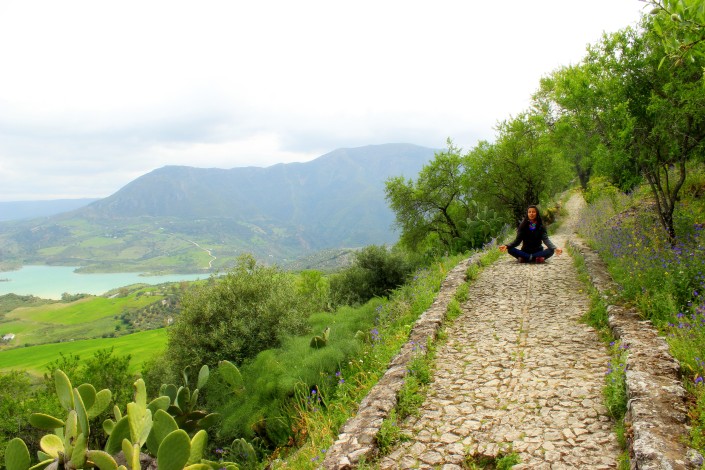
Madrid Diaries: Unemployed but Happy
“I’ve learned that making a ‘living’ is not the same thing as making a ‘life.’” ~ Maya Angelou
Whenever I meet somebody new and they find out, during the course of the conversation, that I’ve been jobless for over one year, living in a foreign country where I have no family or prior acquaintances, and where I just barely speak the language, they look at me incredulously, stupefied: “But what do you do all day? How do you survive? Aren’t you bored to death?”
Let me just mention here that my lack of gainful employment has little to do with laziness, unwillingness, or the “handsome fortune” I may possess, and mostly to do with my legal status in Spain (residencia sin trabajo – residency without work), coupled with the language barrier (dam, rather) that I’m still slowly chipping away at.
But I find it odd, the amount of importance people attach to what you “do” for a living. I myself used to be one of those people: ever since college, I had never been without a job of some sort, full-time, part-time, internship, fellowship, what have you. Even though I wasn’t particularly ambitious or “career-driven”, I took pride in the work I did, because I saw it as a “productive” use of my time, as a contribution towards my own financial wellbeing, and as a logical step forward in my profession, another glittering addition to my resume. And, even if none of that held true, at least I would have a response to that piquing, unrelenting question, the backbone of social banter – “So, what do you do?” I could define myself in one neat, clean, impressive title, and immediately win the other person’s respect. That felt good.
So what happened when I followed my Erasmus Mundus PhD candidate-better half to Spain? What happened when the prospect of landing a job of any kind – let alone related to my career – was suddenly as bright as a Lahori home on a sticky summer’s night? (non-Lahoris/Pakistanis, look up “load shedding” on Wikipedia!)
Well, like any respectably assiduous person, I was frustrated; frustrated with my lack of “productiveness”, uncomfortable with my own free time, guilty of spending money when I wasn’t earning any, guilty of letting my Berkeley Master’s degree “go to waste”; apologetic of my “situation” in general, sighing deeply and resignedly whenever the topic came up…
But the truth is – I wasn’t unhappy. Six months down the line, I was pretty darn happy, and far, far from bored. Society tends to evaluate people based on degrees, paychecks, publications, trophies, on solid, tangible proofs of “success” and one-word descriptions of what they “do for a living”. “I’m a doctor – actor – teacher – writer – cleaner – waiter …” As if nothing exists beyond the ambit of those rectangular brackets.
But we are so, so much more than what we do. The tragic part is that most people never have the time, the opportunity or the motivation to explore themselves beyond the one-word labels, to spill out over the edges of their rectangular holes. I figured: I’m here in this fantastic European city, lucky enough to have time, opportunity and buckets of motivation – could I really complain about my “situation”?
Now, when someone asks me the invariable, the pedestrian, “So, what do you do?”, I cheerfully reply, “Well, I’m currently employed with living”, and present to them the following list:
1. Dance
Apart from taking regular classes at the Karnak School of Oriental Dance in Madrid, I started teaching Bollywood Dance earlier this year with Tara, my partner-in-crime from across the Wagah border. Our group, Mantara, recently performed at a Diwali Dance Fiesta, where our lovely alumnas did splendidly well. Throw in Indo-Pak feasts at the local (Bangladeshi) restaurants and mini-dholkis at my house, complete with mehndi (henna), chai, retro Bollywood music videos and Coke Studio Pakistan, and home doesn’t feel so far away!
2. Song
I also recently joined Voces de Ida y Vuelta, a multicultural, multlingual choir that performs at local fundraisers and charity events. Grouped with the sopranos, I’m currently working on reaching glass-shattering pitches and memorizing Cuban, Chilean, Brazilian and Gabonese songs, with many more canciones to come – including one from Pakistan!
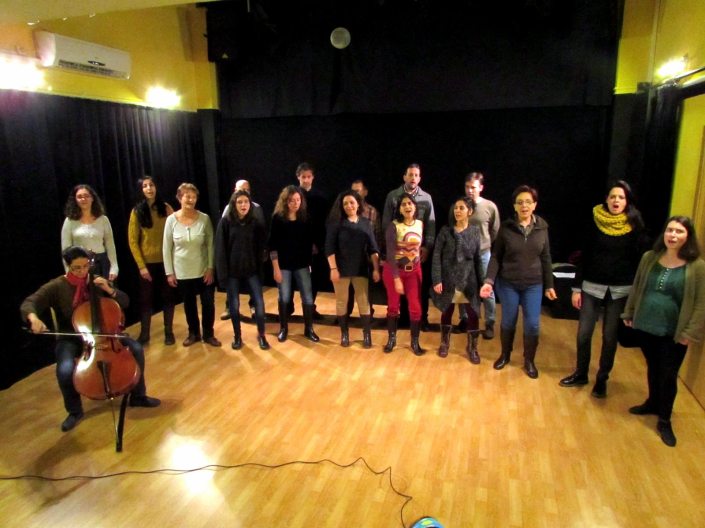
3. Art
I don’t “make” art (unless you count photography), but Madrid is such a fantastic place to see and appreciate all kinds of art – for free! – that you can’t help soaking it up every day, as you casually stroll through an exhibition at the neighbourhood gallery or at a random cafe, at the former Post Office, the one-time slaughterhouse or tobacco factory, at Retiro Park, or in the graffitied alleys of Malasaña. Over the course of my artistic education in Madrid, I’ve decided that I don’t particularly like (or understand) Picasso, but Dali I find fascinating (though I don’t fully understand him either). I’ve also decided that if a painting looks too much like a photograph, then it isn’t a good painting. There, my two cents of artistic wisdom!
4. Archaeology
Following up on an old dream (not inspired by Indiana Jones!), I volunteered for an archaeological excavation (read: labour camp) this summer, in the small town of Pollena Trocchia in the south of Italy. Together with 20 bright-faced archaeology undergrads from the U.S., U.K., Canada and Europe (I had to represent the brown people of the world), I dug, scraped, shoveled, pick-axed, sifted, wheelbarrowed and rolled around in incalculable amounts of volcanic soil at the site of an ancient Roman Bathhouse and Villa, destroyed in 472 C.E. by the eruption of Mount Vesuvius. Needless to say, working as a mazdoor under the hot Neapolitan sun and living like a mazdoor (10 perpetually filthy people sharing a perpetually filthy dorm and bathroom) gave me a whole new appreciation of the academic world, of airconditioned libraries and sparkly-floored museums, not to mention of my own sparkling bedroom and bathroom. But, inspite of it being one of the most physically challenging things I have done in my life, I’m not “cured” of my archaeology illusions quite yet!
5. Food
I’ve always been fond of tinkering around in the kitchen, and every new place inspires you to add new dishes to your repertoire. So, apart from the classic spaghetti bolognese (Pakistani style), the best Thai Green Curry you’ll ever have this side of the Pacific, and my special death-by-chocolate brownies, here are some other hearty goodies you’ll get to sample at Casa Manal. (Note: These photos are not my own, but I swear, the food looks just like this!)
6. Park
If there’s one place we’ve spent more time in Madrid than any other, it’s Retiro Park. Madrid’s main park used to be a retiro, a retreat for Spanish royals until the late 19th century, when it was opened to the public. It’s big, it’s beautiful, and you can do absolutely anything you want there, from running, biking, rollerblading, boating and gyming to yoga, tai chee, frisbee, slacklining, dancing (thanks to us!), to watching magic shows, puppets and live music, seeing art exhibitions, enjoying a coffee, lemonade or sangria (whichever you prefer), to dozing quietly in a shady corner – a little piece of paradise in the heart of Madrid.
7. Language
Apart from continuing Spanish classes at C.E.E. Idiomas and regular intercambio coffee dates with my Spanish girl friends, I’ve added a new item to the daily study regimen – Spanish TV soaps. I’ve never been much of a TV buff, but there’s a certain pleasure in ensconcing yourself on a sofa with a blanket and a box of cookies and watching a dramatic story of some other place and time unfold magically infront of your eyes on an HD TV screen. And here in Madrid, I have an excuse to watch all the TV I want! From the weighty life of Spanish “Reconquista” Queen Isabel to swashbuckling adventures in the Spanish American colonies to a feudal family drama set in a Franco-era Castillian village, I’ll be speaking the Queen’s (500 year-old diction of) Spanish in no time!
8. Volunteering
I joined the WWF (World Wildlife Fund) Madrid Volunteer Network shortly after arriving in the city, but was initally too scared to go to their weekly and monthly activities (tree plantings, bird censuses, plodding around marshes and other strange things that only me and my partner-in-crime from across the border would find enjoyable). We did make it to the Earth Hour event though, inspite of the pouring rain, proving our mettle as die-hard WWF supporters and being rewarded with Panda T-shirts. I plan to join the regular field activites as soon as the weather warms up, this time with reinforced Spanish!
9. Travel & Photography
Perhaps the best part about living in Europe is the travelling – within a few hours flight from Madrid I can be in any number of different European capitals, each with a different language, different architecture, food and feel. And if you plan in advance and are a savvy deal-hunter like I’ve become, the trip won’t cost you a euro more than it would have in your shoestring student-budget days.
But there’s so much to see in Spain itself that we haven’t yet been tempted by elaborate holidays abroad. I watch with satisfaction as the souvenir magnet collection on our fridge steadily grows, as do the number of photo archives on my computer. For me, travelling is pure thrill – every time I go to a bus terminal, a train station or an airport, I feel slightly giddy, as if I were 8 years old and about to step into Disneyland. Each time I’m wandering the streets of a new city, curiosity and a camera in hand, I feel that strange sense of belonging everywhere, yet of belonging nowhere.
And each time I travel, I’m reminded about how beautiful the world is, how diverse the world is, and how similar we all are – all of us humans, busily making lives and earning livings in whatever little patch of earth we call home. In the end, no matter what we do or don’t do, happiness doesn’t come to us. It flows from within.
Thoughts on Leaving Pakistan
Published in the The Friday Times Blog, October 10th 2013
The last time I put thoughts to paper was a year and a half ago, when Z and I moved back to Pakistan from the U.S. It happened very suddenly, under very sad circumstances, and there we were – thrust into a disorienting new life, filling roles we had never anticipated, never wanted, inhabiting, once again, the cloistered, uninspiring world of Lahore’s privileged class.
Much elapsed during the past 18 months in Lahore – much to rejoice and remember. Engagements, bridal showers, weddings. Baby showers, and babies! Farewell parties and welcome-back parties, birthday parties and Pictionary parties.
PTI fever, elections, and Pakistan’s first peaceful political transition. Cliff-diving in Khanpur under a shower of shooting stars, dancing arm-and-arm with Kalash women as spring blossomed in the Hindukush, tracking brown bears and chasing golden marmots in the unearthly plains of Deosai.

I rediscovered my love of history, of abandoned old places that teemed with a thousand stories and ghosts and memories, thanks to a research job at LUMS. I spent many days wandering the cool corridors of Lahore Museum, many hours contemplating the uncanny beauty of the Fasting Siddhartha, whom I had the privilege of photographing up-close. I stood beneath the most prodigious tree in the world in Harappa. I got down on my knees with a shovel and brush during a student archaeological excavation in Taxila, personally recovering the 2, 000-year old terracotta bowl of a Gandhara Buddhist monk.

But, there was also dissatisfaction. Frustration. Restlessness. When we were not travelling, we were in Lahore. And Lahore was, well, warm. Convenient. Static. Living there again was like a replay of our childhood; like watching a favourite old movie on repeat. After a while it got monotonous, somewhat annoying, and a little disappointing.
In Lahore, I could see what the trajectory of my life would be, the next 10 years down. It was all planned out, neatly copied from upper-class society’s handbook, with but minor divergences here and there.
It wasn’t a bad plan. In fact, it was a perfectly good, even cushy plan, one that would have made a lot of people quite happy.
Not me.
There were other things, too, about Lahore, and about Pakistan, things that had bothered me growing up but now seemed magnified to alarming proportions – the incomprehensible extremes of wealth and want, the insurmountable divisiveness of class, and, most worrying of all, the overwhelming self-righteousness and religiosity.
You could not escape it. Everywhere, from TV talk shows to political rallies, drawing rooms to doctors’ clinics, there was a national fixation with religion. Everybody, it seemed, was desperate to convince others – and themselves – of their absolute piety, their A+ scorecard-of-duties-towards-God, their superficial Muslim-ness. Instead of the genuine, unselfconscious goodness that shines through truly spiritual people, in Pakistanis I just saw fear. Religion for them wasn’t about peace, and love, and knowledge. Religion was base. Religion was social security. Religion was a tool of power.
I wanted to say to these superficial Muslims, to all Pakistanis: Just look at the state of our country. Do you really believe that religion has helped us? Has it at any level, be it individual, societal or state, improved the country? Has it alleviated poverty, reduced rape and murder, mitigated corruption?
Have we as a nation achieved anything positive, anything progressive, in the suffocating garb of “religion”?
No. On the contrary, we, as a nation, have become more intolerant, more oppressive, more barbaric, as our outward religious zeal reaches new heights.
And we still do not realize it. The Matric-fail maulvi at the local mosque still preaches that a woman wearing jeans in public is jahannumi, Hell-bound , the TV reporter interviewing an old peasant who has lost his home in a flood wants to know if he kept his Ramzaan fasts, and that educated, apparently “modern” aunty you met at a family dinner launches into a sermon that the reason Pakistan is beset with crises is because we don’t pray enough.
That was the most terrifying thing I found about Lahore, and about Pakistan. It had become a place where no other framework for discussion about the future of the country, about anything at all, was possible. We were mired in religion. We were stuck. We were deeply and hopelessly stuck.
As for the people who thought differently, the elite and “enlightened” class that I belonged to, they responded to the onslaught by retreating further and further into their elite Matrix – a sequestered, protected world where they met up with friends over Mocha Cappuccinos at trendy New York-style cafes, where they shopped for designer Italian handbags in centrally air-conditioned shopping malls, where their children spoke English with American accents and dressed up for Halloween, where alcohol flowed at raucous dance parties behind the gates of a sprawling farmhouse.
It was a parallel universe, where we all lived free, modern lives, like citizens of a free, modern country, utterly disconnected from the “other” Pakistan, the bigger Pakistan, and for all intents and purposes, the “real” Pakistan. Yet perhaps it was our only survival, the only way to keep sane and creative and happy for those of us who chose to live in our native country.
But I could not reconcile myself with it. I found it schizophrenic. Perhaps living abroad had changed me too much. I could not find balance, I could not find peace in Lahore.
So when Z applied to and got selected for a European Union PhD scholarship based in Madrid, Spain, I was thrilled – and a little relieved. Was I looking for an escape? Maybe. Was that the only solution? I don’t know.
When we left Lahore, on that eerie twilight flight in August, our lives packed into just one suitcase and backpack each, it was bittersweet. I was sad to say goodbye to loved ones, to friends and family whom I had spent such wonderful moments with in the past year and a half. I would miss being a part of their lives. And I would miss the incomparable natural beauty of Pakistan – beauty and heritage that is disappearing day by day due to neglect and ignorance.
Yet, I knew that I had to go. I knew that staying in Lahore – “settling for” Lahore – buying joras from Khaadi, attending tea parties, managing servants, the odd freelancing or part-time job at LUMS, was not going to make me happy. And we could not depend on the love of family and friends to sustain us forever. At the end of the day, everybody had their own lives to lead, their own paths to carve, their own hearts to follow.
And that is how we ended up in Madrid.
Sitting here in our apartment, a cozy, parquet-floored 1-bedroom affair, I can hear the babble of excited young voices below the window, a medley of idioms and accents; the clink of glasses and clatter of dishes from neighbouring restaurants; the smoky strumming of a flamenco guitar, the wheezy chorus of an accordion; the cries of Nigerian hawkers and Bengali street-peddlers, and the low hum of the occasional taxi cab, rolling along the cobbled streets of this lively old pedestrian barrio of the Spanish capital.
A new city, new adventures, new memories.

Lingering Fragrance
She needed some green in her apartment.
Before she bought furniture, she was at the flower shop – a subconscious evocation of a fecund childhood, romping in gardens, rolling in lawns, clambering mango trees, picking flowers in the morning for the breakfast table…
“Philodendrons, lilies, ferns, azaleas, bonsai…”
Hmm. She spends long minutes gazing at each plant, fingering the leaves, feeling the texture, inhaling its aroma.
“I’m sorry, I just can’t decide!” she smiles apologetically at the Chinese lady behind the counter. “Everything is lovely, but…” What do I want?
Then, among the flowering pots, in a tangle of pink, yellow, purple, red, blue, she spies a familiar star-shaped white…
She blinks, startled. Is it? It can’t be…bending forward, she buries her face in the modest little shrub bearing the two pale-faced flowers and takes a deep breath…
Suddenly, she’s not in Brooklyn.
She’s in a garden in Lahore on a warm summer’s night. The grass is damp from the afternoon rain. Crickets and other invisible creatures of the dusk trill madly in the bushes, and a velvety breeze rustles in the bougainvillea creepers and Gulmohar above, filling the air with a shower of orange and fuchsia…
It smells sweet, but a subtle kind of sweetness – of budding love, and clasping a dear one’s moist hand, of late-night drives and dewy white bracelets bought from the barefoot little boy on the curbside, of cooing pigeons and clouds of fluttering wings on the rooftop, of twinkling black eyes rimmed with kajal, white blooms wreathed in black hair, and the enveloping scent of flowers in a bride’s bedroom…
“So you want the jasmine, miss?” The Chinese lady grins, her cropped black head nodding vigorously, round black spectacles bouncing on her nose.
Jasmine! Motia…
“Yes, I’ll take the jasmine,” she nods vigorously back.
It sits on a windowsill in her apartment, in a modest little green pot – spreading its delicate, memory-laden perfume over the folds of her new life, a graceful remembrance, a lingering fragrance of the past.
Change
Humans are such creatures of habit.
We yearn for change, for tides and storms to break the uniformity of our days.
But when change comes, we recoil; we are unnerved, thrown into disarray, suddenly clinging to what we know, what is familiar.
Whether a change in city, neighbourhood, house, colleagues, friends.
Even the arrangement of books on a shelf, or spices in the kitchen cupboard – it agitates us.
Maybe it’s a sign of aging. Or maybe it’s just me, an earthbound Taurus.
The sea is beautiful, but standing on the shore looking out upon the interminable flatness, the ceaseless motion, I am intimidated. The sea does not calm me.
I prefer land, the solidity of a mountain, the rootedness of a good weathered tree – feet firm on the earth yet a head in the sky, nodding in the breeze, whispering leafy music, growing stronger, reaching higher.
I wish to be like that tree – not the water, not the ocean, heaved and hurled about with its vagaries – but to mature with the seasons, to sing with the clouds, to know my own depth.
When I was younger, the idea of being a carefree, freewheeling itinerant excited me – it was romantic, it was adventurous, it was what the heroines in my favourite novels were like – and a part of me still clings to that notion.
But a bigger part has accepted that I am earthbound – I am not not made of air, or fire, or water, but of deep, dense, redolent earth. I need to sow, to nest, to reap, to have spontaneity with order, to keep the scissors in the right drawer, to adore a particular film, writer, song, person; to be attached.
New York is becoming home.
A Lazy Friday Afternoon

Ah, that blissful in-between-jobs limbo! With my three-month HuffPost stint come to an end, an exciting news fellowship starting next week, and a much anticipated trip to the homeland in February, I couldn’t be a happier house elf this bright white new year. I wake up, make myself a cup of coffee on my Black & Decker coffee machine – a gift from my lovable Toronto aunt – butter up a slice of toast, and settle down in front of the laptop to catch up with friends on Skype, alternating between “French Lessons with Michel Thomas” and “The Hitchhiker’s Guide to the Galaxy” on iTunes, with an hour of Democracy Now! during lunch, and, some more coffee.
You see, I’ve become somewhat of a coffee addict (that, and The Office). I think it’s since I started popping illachi or green cardammon pods into the water to boil (a cue from the Palestinian landlady) – I just can’t seem to get enough of that aromatic zing. Toss in a spoonful of cocoa and a pinch of ground cinnamon, and you have the most delish mug of coffee you’ll never get from an overpriced cafe.

Today at my afternoon coffee break, I had a sudden craving for apple pie. Warm gooey apple pie. Grandma Ople’s apple pie, with oodles of cinnamon. There was only one Granny Smith apple in the fridge. So, did I swathe on my winter armour and trudge to the grocery store to buy more apples?
No. I’m not mad. I just made myself one slice of pie.
It was rather tricky, scaling down the ingredients from a recipe for 8 (1/4th of an egg, anyone?). But I patched something together, somehow, and it turned out – well, not exactly ravishing, but still quite yummy.
All in all, a perfectly comfy Friday. There is something so comforting about coffee, apple pie, and watching the snow drift down endlessly from the sky. Enough to make you forget about the troubles of the day, and those on a distant shore – if only for the moment.
Warmly Winter
Published in Pakistan’s “Women’s Own” Magazine, December 2010
It’s finally happened.
The knock on the door, and an outstretched palm containing a steaming plate of food.
Chicken-and-veggie rice casserole or Palestinian maqluba, to be specific, on a plastic white flower patterned plate.
Yes, Mama Jama the landlady brought us dinner!
And it couldn’t have been at a more opportune time. In my missionary zeal for bhoono-fying, I had just burnt the aloo gosht. Mama Jama probably smelt the aroma of charred onions drifting down the staircase and took pity on us.

Of course, it’s not that I was expecting her to. It’s not the reason I’d show up at her doorstep every other week with a lovingly-prepared bowl of kheer, zarda or melt-in-your-mouth gulaab jaaman.
I was just being neighbourly.
And testing out my (extremely novice) Pakistani dessert skills.
And skirting the guilt of single-handedly consuming 2 pounds of sugar in one afternoon – an inevitability if said bowl of kheer or gulaab jaman remained in my apartment, thanks to the relentless sweet tooth inherited from my dad.
Yes, I am an epicure (fancy word for greedy). If it were up to me, I’d either be at home baking apple pies and chewy chocolate brownies before proceeding to do justice to their goodness, or I’d be outside in a café or bakery sinking my teeth into the congenial warmth of freshly-baked cinnamon roll, red velvet cupcake, almond croissant, pumpkin pie, strawberry cheesecake, piping hot apple pie or chewy chocolate brownie, with my nose between an equally delicious New York Public Library book.
Luckily, I have a very active and health-conscious husband, who, a) makes sure that I never find more than 50 cents in my wallet at whatever random moment the sweet tooth calls, rendering me helpless in the face of heavenly-smelling street stalls and petite cafés with bothersome minimum-cash policy; and, b), manages to drag me out somewhat regularly for a bit of exercise.

Our current physical activity is rock climbing – on the boulders of Central Park. So, if you ever happen to be strolling near Columbus Circle on a Saturday morning and see two figures attached to a rock – one, strong, athletic, moving swiftly across the rock face like a demo picture from “The Self-Coached Climber”, and the other a ball of play-dough smushed against the wall – you’ll know it’s us.
I have to say though, as much as I was dreading another East Coast winter, there is a charm about it, a crisp-coloured storybook charm.
I don’t know if it’s in my brown BearPaw boots, or the toasty knit cap and woollen mitts that I gleefully don every morning; the feel of a hot Starbucks hazelnut latté between my fingers or the beautiful bareness of Central Park, the crunch of leaves beneath my feet, and the blossoming of Christmas lights on 5th Avenue. Ice skating at Bryant Park, followed by a cup of steaming apple cider and a stroll through the dazzling holiday market, a veritable Santa’s workshop; the pleasant conviviality of huddling with strangers in the 8×8 floor space of Kathi Rolls or Mamoun’s Falafel in the Village, exchanging smiles over a shami kabab roll and shared hearth; or, maybe it’s just the indescribable comfort of home, where you return from the cold with relief and bliss in your heart – given that the heat is working, which you can trust it to be if you’re on food-exchange terms with the landlady.
Of course, slopping through puddles to do your laundry or buy a carton of milk is another matter, as are the thundering hailstorms that sound as if they’ll break straight through your skylight and flood the apartment, the sodden subways and the razor-sharp winds whipping through the labyrinth of high-rises ready to slice off your nose, or having to wear the same inflated down jacket for five months until you are resigned to looking like the Michelin Tyre Man in every photograph.
But no matter how much I complain about it now, winter was always my favourite season in Lahore. I would dream about it the whole year – dream of the day, sometime in November, when the gas heaters were unearthed from the store room and dusted out, when bright chunky sweaters and printed Aurega shawls were unpacked and sunned to get rid of the minty smell of mothballs.

The marvelous halvas my mother would begin to ghot-ofy in the kitchen, gajar, anda, sooji, and my personal weakness, chana daal, the rich smell of ghee and shakkar permeating the entire house in its intoxication; the blood-red pomegranates and succulent oranges we’d eat sitting out on the dewy lawn, the dogs snoozing under the chairs, wrapped up in a brown khaddar shawl that smelt of faded Chanel No. 5.
Even going to LUMS in the morning was fun, dressed in a gigantic sweatshirt and sitting on the sidewalk across the cafeteria after class, watching the steam from the PDC teacup mingle with our cloudy breaths, as the fabled Defence fogs circled in around us from the empty stretches of Phase 5, and we pretended we were in a Sci-Fi movie…
Winter was synonymous with Ramzaan and Eid, with grand tented shaadis, Capri nashtas and apple sheesha at MiniGolf, starry walks, sunny picnics, bonfire dances; lying curled up on a floor cushion in front of the heater in your living room, looking out at the lights of the 600-year old Lahore Fort from the rooftop of Cuckoo’s on your cousin’s December birthday, or blushingly saying “Hello” to your soul mate in the back rows of a Gymkhana concert…life didn’t get any better than a winter in Lahore.
And though I am here now, and New York City beckons with its lights, treats and newfound friends, and I am happy with my new life, I still dream of those magical Lahore winters, old friends, old shawls, ancient forts, and the fresh, pink-cheeked days that hold some of my most precious memories …
And that’s alright. Because time doesn’t flow if you don’t dream.
California Dreaming
Published in Pakistan’s “Women’s Own” Magazine, November 2010
I’m sitting on a Virgin America flight to San Francisco, sandwiched between two very distinct gentlemen: one, a rotund avuncular specimen happily cuddled into a hot pink inflatable pillow, and the other a goggle-eyed, fuzzy-lipped stick figure equally absorbed in a game of Doom on his personal TV.
Meanwhile, I’ve been nibbling on the egg and cheese Panini I bought from JFK five hours ago. Consider yourself lucky if you even get a complimentary packet of peanuts on a domestic U.S. flight; the crisp coleslaw sandwiches and squelchy shahi tukray of PIA en route to Karachi are but a distant fantasy. Ah, PIA, I forgive you the screeching babies and leering uncles and assiduously obnoxious 5-year olds kicking behind my seat for the sake of those shahi tukray!
There it is again – that incorrigible nostalgia I’ve been wallowing in of late. It also happens to be the sole motivation behind this trip to the West Coast. San Francisco, Berkeley, Bay Area! What don’t I miss about that place? The deep blue waters of the Bay, the impossibly puffy white clouds, the crunchy-freshness of the air, the swaying palms on the horizon? Or the incredible purple-gold sunsets over the Golden Gate Bridge, which I watched from the steps of the International House in Berkeley every evening on my way back from class…

Then there were my favourite haunts – the thrift clothing stores where you could find tassled Pocahontas skirts, Dashikis and BCBG jackets all on the same rack, Berkeley’s answer to Zainab Market and the place I’d inevitably splurge half my work-study paycheck. Those wondrous second-hand book stores, musty and chaotic, where wiry old men in suspenders smiled benignly at you over their wire-rim glasses, exactly the kind you’d expect to hand you a copy of “The Neverending Story” and promptly vanish. The board game shop that I never spent less than an hour in each time I entered.

The diminutive Taiwanese baba in a coolie hat who stood on a bucket all day chanting “Happy, Happy, Happy” and holding anti-Bush and anti-Dalai Lama placards; the crazy campus bum who earned his daily bread by charging people to swear at him (I think the rate was a dollar per minute). The roadside jewellery stalls on Telegraph Avenue, a riot of feathers, seashells and antique Afghan silver; the proliferation of Pakistani fast-food joints, free Lipton mixed chai and plastic cups of kheer; the refreshing absence of chain stores till as far as the eye could see, save for the errant downtown Starbucks. The fixture of anti-war protestors on Sproul Plaza, the Native American chief who lived in the trees and ran for Berkeley mayor, the weedy-smelling People’s Park and my homeless old Vietnam-veteran friends who strummed away my favorite Eagles’ songs on the grafittied pavements.
Crazy, beautiful, bubble-of-a-Berkeley, just my kind of place. But most unforgettable of all were the friendships, forged over the unforgettably tasteless food they served at the International House, where I lived two years during Journalism School.
So, when I found out that Z’s company was sending him to Los Angeles for work, I immediately pulled out my old Dashikis and peasant tops and gotay-wali kurtis from the suitcase under the bed – no way was I missing out on a trip to California either!

As for New York City – well, I’m learning to like it. Getting out of the house definitely helps, which can be quite a challenge for a ghar ghussoo or homebody like me. As I blissfully look around at the avocado green walls of my apartment, the potted Pothos plant hanging from the ceiling, the block-print Gultex tablecloth, the beauteous kilm gracing the dark brown floor of the living room, which my mother brought over from Lahore this summer, the mantelpiece full of books, and as I inhale the scent of caramel-vanilla candles and sandalwood incense, listen to the birds chirping in the trees, and open my fridge to admire the lasagna, apple pie, leftover homemade Pad Thai and housewarming chocolate pastries, I think: who in their right mind would want to step out of this piece of heaven? Out there, into the puddles and gloom, odiferous subways and tourist-yapping streets?

Actually, I have been forced to step out. I have been forced to communicate with people other than my husband, the Palestinian landlady and the Indian-Guyanese cashier at the grocery store – courtesy my two jobs.
Yes, I’m working! The hitherto unemployed, Master’s degree-holding housewife has found not one, but two jobs (Thank you, thank you). I have joined the ranks of the active labour force. Now I too get to catch the morning train at rush hour along with the rest of the dapper designer bag-clutching Stieg Larsson-obsessed populace. I, too, grumpily slam down the alarm clock at 7 a.m., gulp down a bowl of cereal, throw on a slightly crumpled H&M button-down, and shoot down the stairs to the subway with the alacrity of somebody who’s just been informed that Michael Jackson has come back to life – all to sit in a windowless office staring at a computer screen for 8 hours straight, with a meager 15 minutes at lunchtime to eat your humble turkey sandwich, and, if it’s a particularly exciting day, exchange a few words other than the mechanical “Good Morning” with your ambitiously poker-faced colleagues.
Sounds tempting, doesn’t it? It’s true, jobs are overrated. Work is overrated. A necessary evil. At least that’s what I’ve concluded from my weeks of face-reading and eavesdropping on the jam-packed subways, and from my own (brief) brush with a 40-hour work week. I’m already beginning to daydream about the “Era of Gainful Unemployment”: extended tea sessions with Mama Jama the landlady over half-a-dozen wedding albums and Syrian soap operas, 5-hour long grocery store binges, simultaneously reading Kafka, Tolstoy and Orhan Pamuk, walking with no purpose. The “Era of Frustrated Unemployment” has been conveniently glossed over, like a Pak Studies History book, as has the even more miserable “Job Application Process”. Dissatisfaction, thy name is me! Of course, it would be an entirely different matter, if, say, I actually found that elusive “dream job”, or, if I even knew what that was…
“Ladies and Gentlemen, we have begun our descent into San Francisco International Airport. Please switch off all electronic devices, bring your seat backs to an upright position…”
Yay! The announcement I’ve been waiting for! Peering over the globular uncle’s hot pink pillow, I catch a glimpse of the blue water, the green hills, the red arches of the Golden Gate from the window. Memories flood back to me. I remember the moment when, over 3 years ago, I landed in this city as a graduate student, straight out of LUMS, moving away for the first time from the only home I had ever known. I remember teasing my mother at the forlorn finality of her goodbyes – “Ammi, I’m going to come back, you know!” But she knew better.
And though I can’t wait to see all the places and people I loved, the nooks and crannies and eccentricities of this place I grew to call my second home, I also feel a little nervous. Will it be the same?
I often feel this way landing in Lahore. Is going back ever the same? Or do those beloved places and people inevitably move on, and leave you behind, so that the only way you can enjoy them is through nostalgia, through memory?
Perhaps they don’t change at all. Perhaps the change is in you.
PS: I had an absolutely fabulous time in California. Can’t wait to go again.
PPS: In case you were wondering, the beady-eyed furry creature(s) in the oven have been eliminated.
Hello New York!
Published in Pakistan’s “Women’s Own” Magazine, October 2010
I’m sitting cross-legged on the dark brown laminate floor of our 3rd storey brownstone apartment in Cobble Hill, Brooklyn. To my right is a mound of tools – staple gun, drill, screwdrivers, pliers, nails, measuring tape, paintbrushes, and a number of pointy objects I can’t identify – and to my left, a mountain of half-opened boxes, bags and suitcases. Infront of me is the ustad – my husband – wearing paint-splattered khaki shorts and a white t-shirt, mounted on a step-ladder and swiping the bedroom wall with strong strokes of a roller brush soaked in “Kabuki Clay” – a rich, creamy white paint that looks so MilkPak delicious I’ve been tempted more than once to dip my finger in for a taste. “No, you can’t eat it,” my better half repeats with inexhaustible patience. He looks pretty good, I think. The rugged workman look, stubble, smeared forearms and all.

I on the other hand look like a complete bum. Not the cool dreadlocked guitar-toting kind of Berkeley and Ithaca – my two former domiciles – but the true urban homeless, the kind who sleep on subways, scour through trash cans, trundle around with empty shopping carts, and invariably miss a few teeth. OK, maybe not exactly, but I think my dirt-streaked face, faded blue jeans ripped quite naturally at the knees, musty red rag-of-a-t-shirt with a mournful-looking Batman printed at the front (the kind they call “vintage”), spots of dry paint on my calves, toes, fingers, fingernails, forehead, hair – which currently sits in a chaotic jumble on the top of my head – are enough to earn me a kindly quarter from a passerby, or even a Central Park bench spot.
“Four days ago, I would’ve died before I let you see me like this,” I joke with my husband-of-nine-months. But appearances stop mattering pretty quickly when you’re moving house, living out of a single duffel bag, subsisting on bread and cereal, sleeping on the floor surrounded by paint cans, scrubbing bathroom tiles, carrying a 70 pound flatscreen TV up three flights of stairs, and whatever kajal you’re wearing melts away like candlewax in the fanless stillness of a New York June afternoon, leaving unflattering gray streaks in its wake…

But, here we are – our new home! Or at least the four walls, slowly colouring up and being adopted as our own. Bed, dressing table, sofa, kitchen cabinets….all afterthoughts. They’ll follow in due time. Meanwhile, I’m already in love with the leafy elm tree outside the living room window, the peeping spires of a nearby Greek cathedral, and the rows and rows of slender redbrick buildings, framed with terraces and ivy and windows, rows and rows of windows, like a beehive, a kaleidoscope of lives. I’m beginning to discover for the first time the guilty city-pleasure of observing neighbors through my window – what they’re watching on TV, the colour of their walls and curtains, who they have over for tea, coffee or lemonade, whatever their cultural preference. I also love our landlady, a sweet old Palestinian grandma as white and delicate as a cream puff. She sweeps the backyard every morning in her black embroidered thob, spends the afternoons with her “cousins” around the block, and sits on the porch in the evening sipping mint shai with the Moroccan neighbours. She knows maybe 10 words of English (including “crook”), and breaks into a melodious stream of Arabic the moment she sees our faces. To date, she has six grown-up American-accented children, who all seem to live nearby but keep appearing at the building every other day. I suspect she has more, because I’ve seen letters in the mailbox addressed to other people with the same last name (nosy, I know, but I can’t help it!). I think I’ll just ask her one of these days – when I go to call on her, officially, carrying a pot of biryani or gajar ka halwa, some deliciously impressive Pakistani dish (cooked over the phone with my mom’s instructions), my 30 words of Arabic, and my own first name – from experience, the surest way into an Arab’s heart!

How we found this apartment is another story altogether. Let’s just say that after ten days of Craigslisting, emailing, subway-hopping, borough-crossing, handshaking, trickster agents and sore feet, from Gramercy to East Harlem to Clinton Hill, Bushwick, Jersey City and Jackson Heights, from hoods to dens to beaver hats, the one question that we asked ourselves was: “Could we bring our parents to this place?” I mean, if you’re going to live 6,000 miles away from home, family and every imaginable comfort, it better not be underneath a phaatak or graffitied expressway, above a Liberty Market-esque kids’ clothing store with sugar-pink jumpers in the display, or a scene that inspired George Orwell’s Victory Mansions.
So, Cobble Hill won, with its Thai and Mexican restaurants, Chinese laundromats, 24-hour Arab-owned delis, Cuban musicians, Indian policemen, British bankers, thrift stores, designer boutiques and fresh fruit markets, moms, nannies and stroller-babies, yuppies, hippies and hipsters, English on the street in twenty different accents – all the things that make New York special. There’s a lot to be done of course – painting’s just the start! – and I’m reminded of my mother and father, at the time we were building our own house in Defence, Lahore. The interminable haggling with the contractor, the spectrum of paint samples on the wall, endless trips to Casa Bella and Barry’s for upholstery fabric, Bajwa’s for lights, Ferozepur Road for tiles and bathroom fixtures, my sister and I grumpily trailing behind after school in our dusty blue-and-white checked uniforms. My mother was a natural at it; colours, textures and the arrangement of things came effortlessly to her. I don’t know if my design sense is as instinctive, though I’d like to think that I’ve imbibed at least a little. You can decide next month, once we get to the Architectural Digest Before & After stage!
Uh-oh. I was just in the kitchen putting together some sandwiches for dinner, and I opened the oven, where I had stored some extra plates, and a scream escaped from my throat as a pair of beady black eyes met mine…it seems, to quote Agent Mulder, “We are not alone”!
Or, as any veteran New Yorker would say, “Welcome to New York!”










